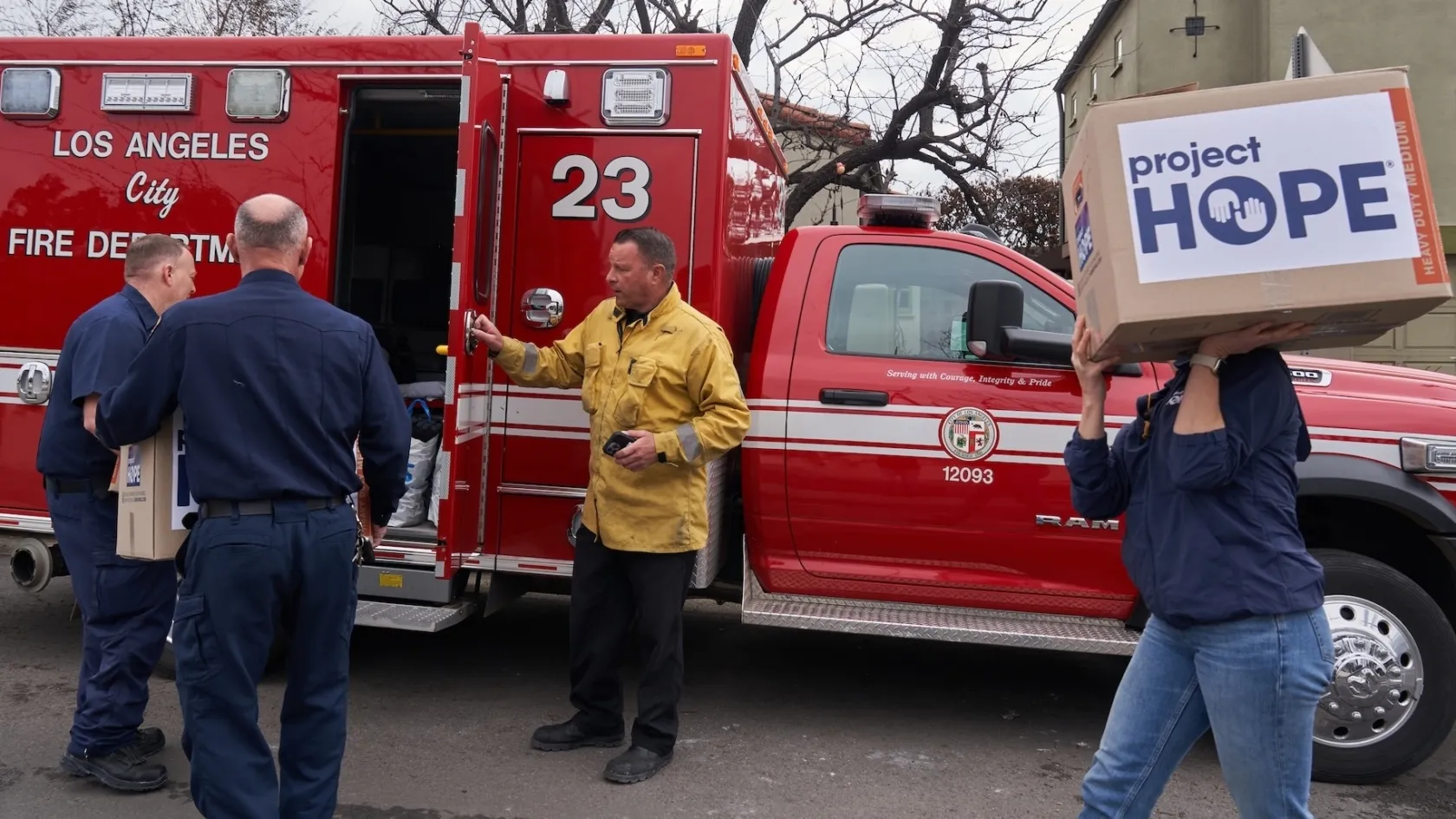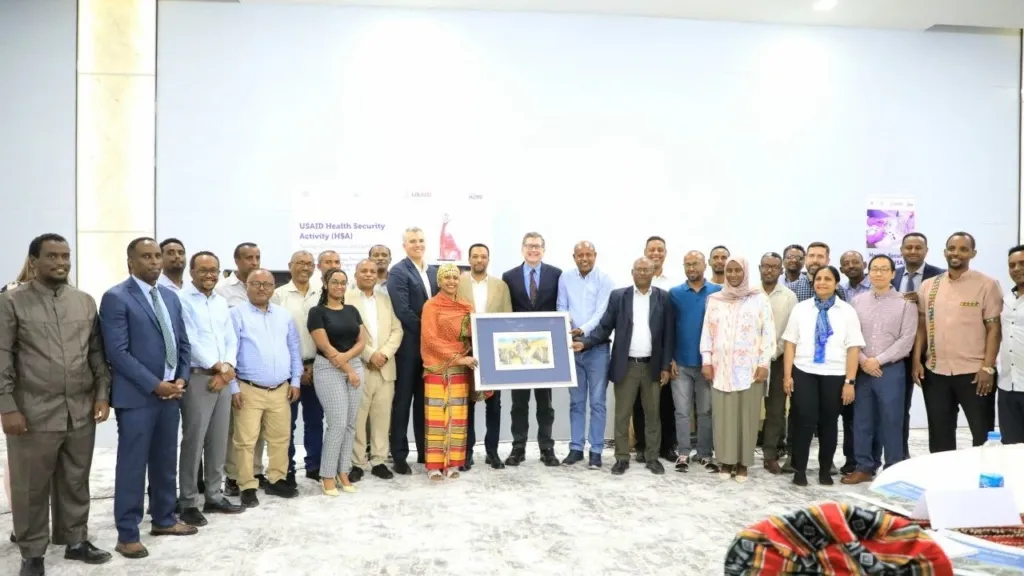In Mexico, Young People Are Changing the Narrative
In partnership with AstraZeneca, Project HOPE is empowering young people in Mexico to practice healthier habits and support one another in the fight against noncommunicable diseases like diabetes.
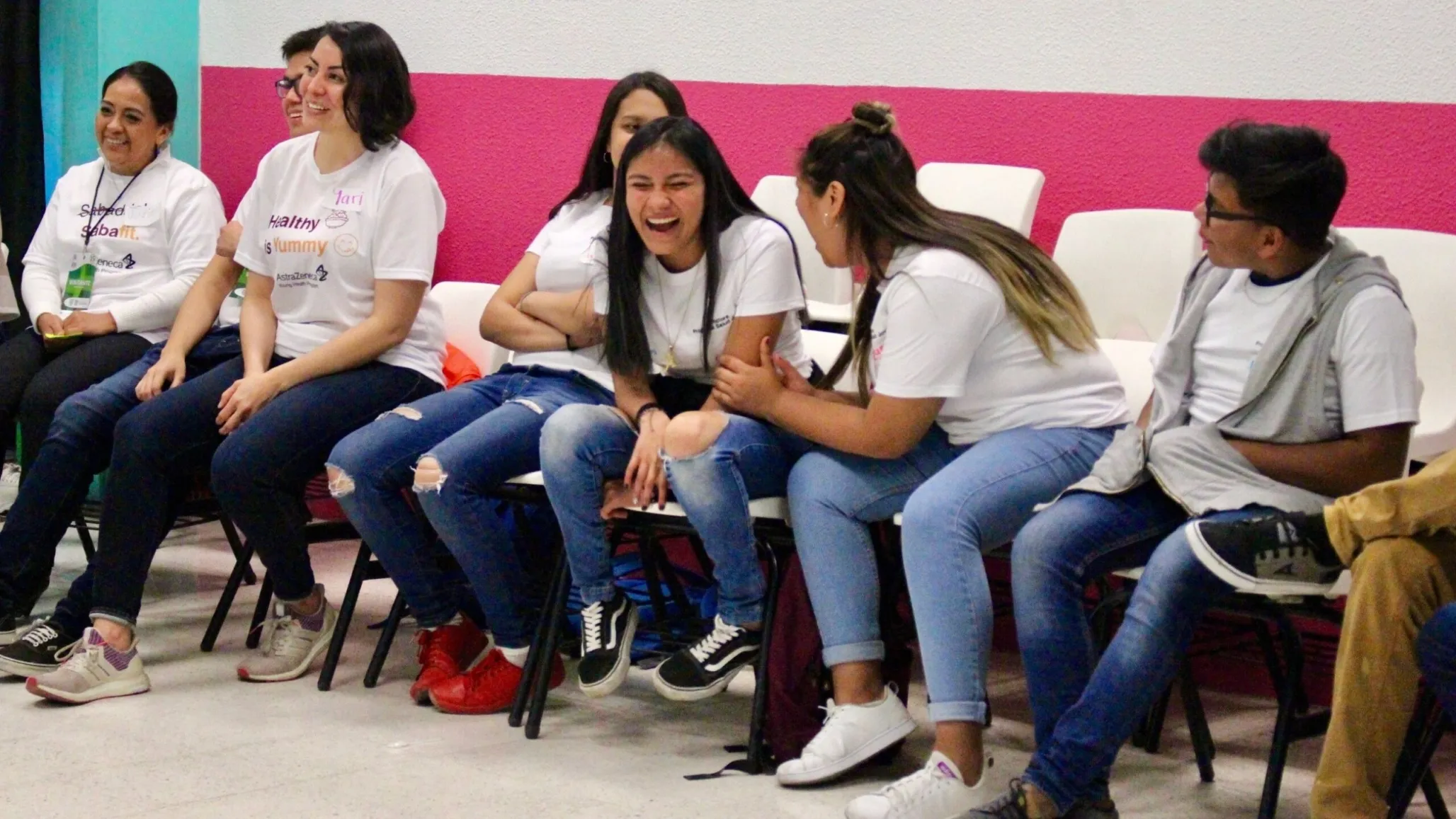
Just a year ago, life for Emiliano was drastically different. He was unmotivated. He was anxious. He’d stopped doing the things he used to love, like playing soccer.
Then a new club formed at his school that would change everything. Workshops led by Project HOPE and Yo Quiero Yo Puedo were a refreshing change of pace from other classes — they were dynamic and fun, and focused on a subject he knew little about: health.
Though timid at first, Emiliano felt welcomed into the group. Soon, he was learning how to turn his health around, and noticing the connections between his daily habits and his mental and physical well-being. He was also taught how to be a leader in his peer group and effectively relay the education to his friends.
“I want to be healthy, mentally and physically,” Emiliano, 20, says. “Since the program started, I drink more water, I’m eating healthy, I’m more focused on my soccer games, I’m more creative with my projects. I feel better. I have more energy. I’m proud of myself.”
‘An Epidemiological Emergency’
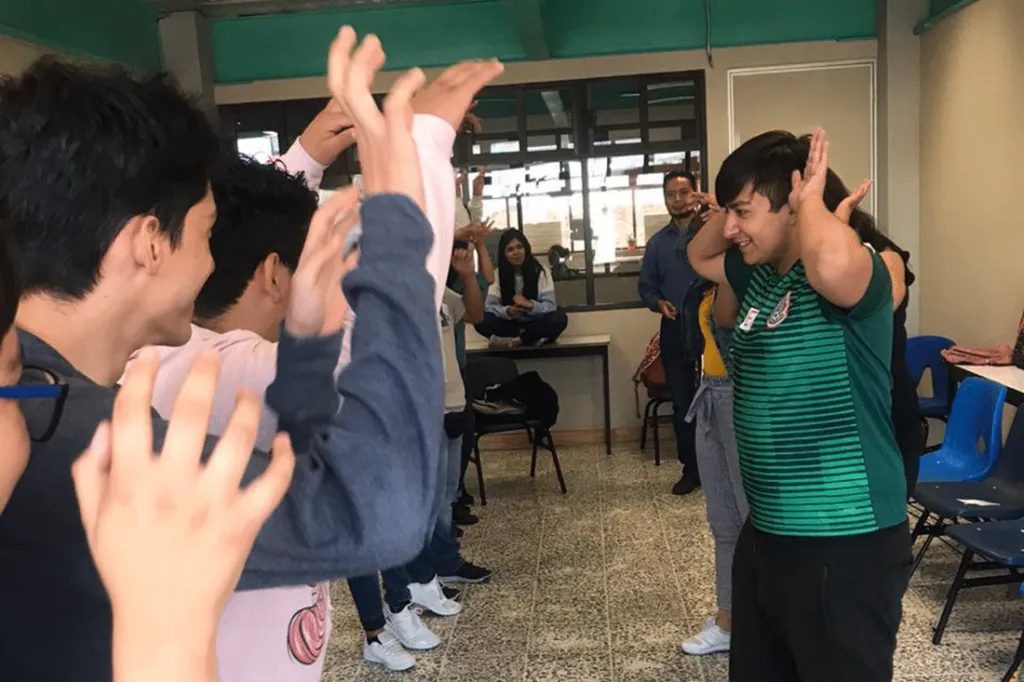
More than 1 in 3 children and adolescents in Mexico are overweight or obese — a stat that doesn’t come without consequence: All of these young people are at higher risk of developing lifelong diseases like diabetes and other noncommunicable diseases, which are responsible for an alarming 80% of all deaths in the country.
“We are facing an epidemiological emergency for obesity and diabetes,” says Yarishdy Mora, Project HOPE’s Senior Program Manager for the AstraZeneca Young Health Program. “Potable water is not available, there’s a lack of nutricious food in the community, and youth are targeted with marketing for alcoholic beverages, sweetened beverages, and junk food.”
Adolescent years are critical in reducing the risk of NCDs and laying the foundation for a healthy life. During this time, young people make decisions, form habits, and choose paths that can have lifelong effects and impact across generations. Over half of all NCD deaths can be traced back to behaviors that began during adolescence.
But with the right education and support, young people can take control of the choices that determine their health. That’s why HOPE is working with AstraZeneca to empower young people in Mexico with the knowledge and skills they need to practice healthier habits, while simultaneously bolstering the health services available to support them. We’re also strengthening the implementation of — and advocating for — policies and laws that help them make healthier choices.
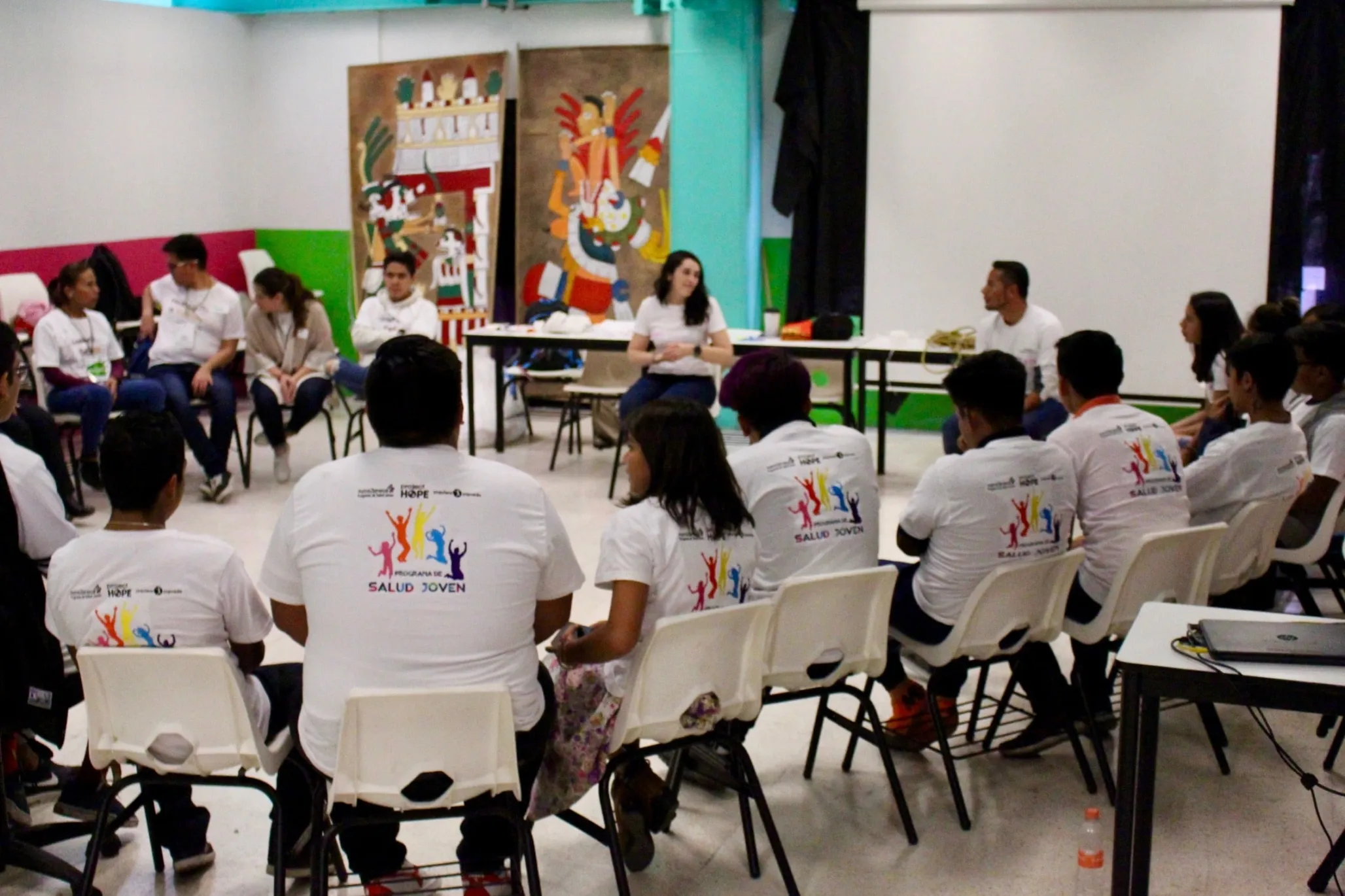
AstraZeneca approached Project HOPE in 2018 about expanding its award-winning Young Health Program into Mexico. First launched in 2010, the AstraZeneca Young Health Program reflects AstraZeneca’s contribution to society through a focus on NCD prevention. To date, the program has reached more than 4 million young people with health information, including our newest work in Mexico. Since March 2019, HOPE has worked closely with Yo Quiero Yo Puedo to reach young people in Azcapotzalco, Iztapalapa, Iztacalco, and Gustavo A Madero districts of Mexico City with the education and resources they need to adopt healthier habits.
Lessons focus on tackling four of the biggest risk factors for NCDs in the country: unhealthy diet, lack of exercise, the use of tobacco, and the abuse of alcohol. They also incorporate gender equality and mental health, as well as pollution and violence prevention.
We train young people like Emiliano to take the lead — to be peer educators who share critical knowledge and skills with their fellow peers through YHP clubs at primary and secondary schools, universities, and community-based organizations. Peer educators serve as role models, and help their friends make healthier life choices and take advantage of available services and resources.
“When I realized I was going to be the spokesperson for all my peers I discovered that we all had similar issues — that this could be a program that could evolve and touch other people, too,” Emiliano says. “YHP has helped me to raise my voice. You believed in me and encouraged me to be my best self. Now I believe in myself, too.”
The fight for health is a community-wide affair: We also reach parents, teachers, and community leaders with the same health education materials, and foster collaboration through activities like community gardens and healthy cooking classes.
“We’re empowering young advocates by providing a platform for them to raise their voices and have actual participation in the political agenda,” Mora says.
Laying a Healthy Foundation
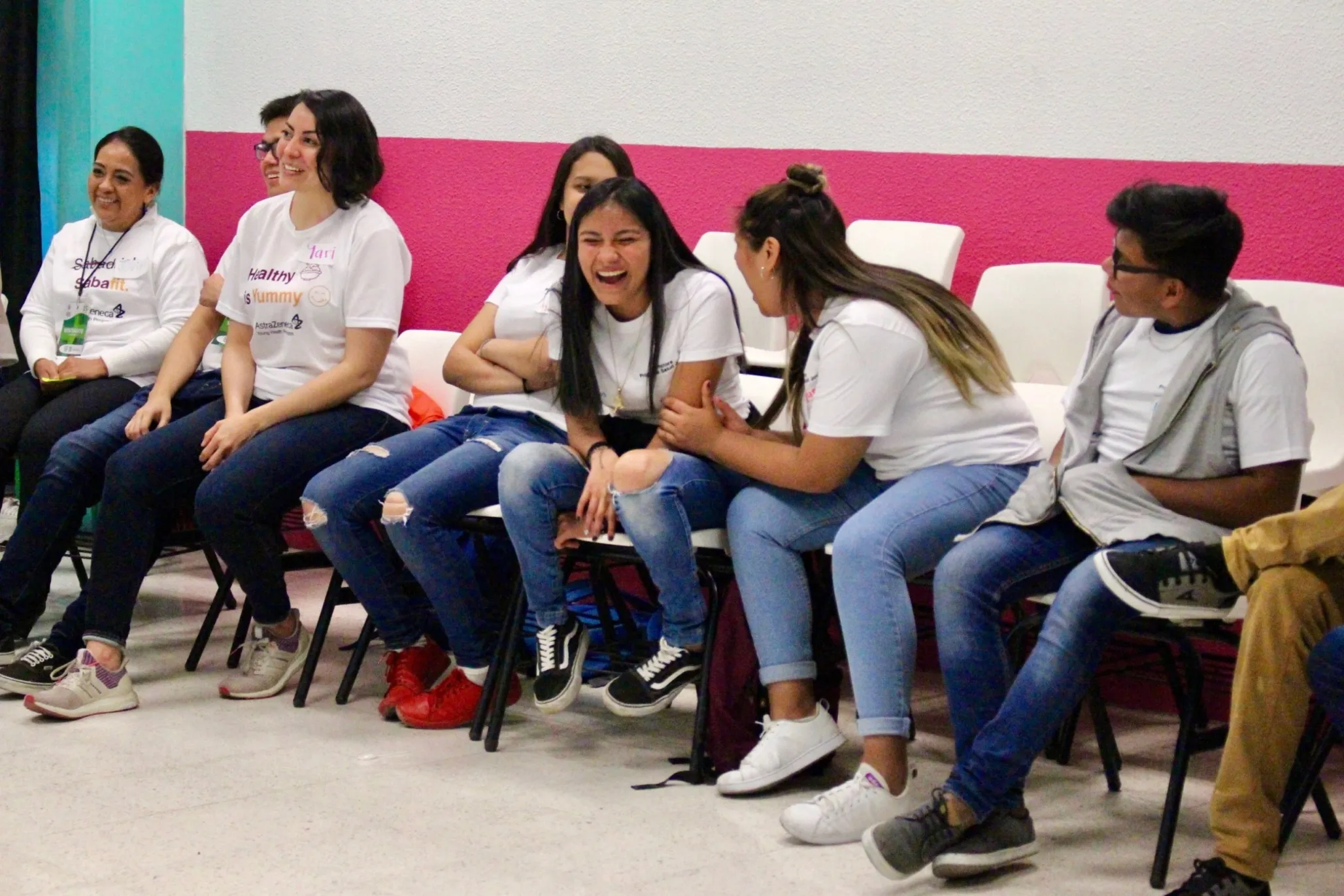
“I’m very much afraid of NCDs — they are one of my biggest fears,” says 15-year-old Paloma García, another peer educator. “I want to live a life where I feel healthy, and to be able to get that message to other people. I’m now interested in being healthy inside and out.”
Without the YHP, Paloma says she’d be less interested in going to school. She wouldn’t have such good tools to improve her health, or the ability to even envision a stronger future. Paloma hopes to live to be as healthy as her grandmother.
“She eats healthy, she has been all over the world traveling, and I’m aiming for it,” she says. “She’s 80 and still exercises, I want to be able to do that.”
“I have found people in the YHP that really listen. They‘re ready for my questions without judgment.”
Around the world, HOPE has worked to address the threat of NCDs like diabetes for more than 20 years. We engage entire communities around the effort to encourage healthy behaviors and prevent and control disease — knowing it takes a village and shared investment to create lasting change.
Our work to prevent and fight NCDs in Mexico is only just beginning, but we have already touched the lives of thousands of high-risk patients and health professionals. Through the YHP, we’ll equip more than 46,000 young people with the resources they need to transform their lives and change the narrative in their communities.
For Paloma and Emiliano, leading a healthy life is about more than their own personal well-being. Paloma wants to set a positive example for her younger sister. Emiliano is motivated by his daughter.
“I want her to see me as an example,” he says. “I want my daughter to have a healthy dad. I want to look at myself in the mirror when I’m 40 or 50 and still look healthy and young. I want to live a full life, and I want to be able to enjoy my health.”

